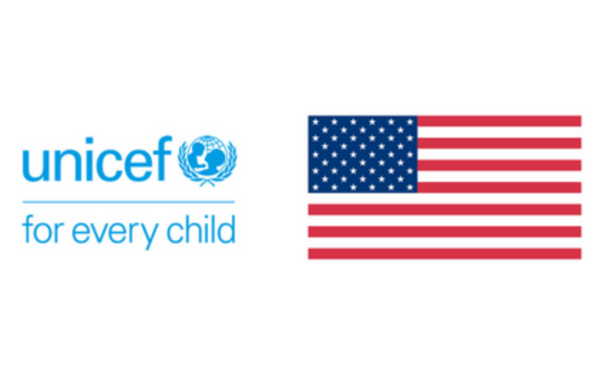EASPD supports call of the Swedish Presidency of the Council of the EU to ensure the protection of Ukrainian children


On 1st and 2nd June the Swedish Presidency of the Council of the EU hosted a high-level meeting on the protection of children. The event highlighted how Ukrainian children have been affected by Russia’s aggression and concluded with a large number of EU Member States signing a declaration to support the protection of Ukrainian children. At its recent conference on family-centred Early Childhood Intervention, the European Association of Service providers for Persons with Disabilities(EASPD) welcomed the declaration. EASPD also stressed the importance of EU Member States acting swiftly to ensure that Ukrainian children currently hosted in the EU can access vital services. These services are essential to promote their ongoing development and minimise the potential impact of the trauma caused by their forced displacement and experience of conflict.
With the continuation of the full-scale war in Ukraine, Ukrainian children with developmental delays or disabilities remain at a greater risk of being unable to access the vital and continual support that they need, as well as experience additional displacement-related trauma. In many cases, the inability to access such services combined with this additional trauma can negatively impact, or result in a regression of, the development and well-being of these children.
In the 16 months since the full-scale invasion, UNICEF and EASPD have partnered to provide an emergency early childhood development support to displaced Ukrainian families in Bulgaria, Moldova, Poland, Romania, and Slovakia. This project has aimed to quickly address the growing needs of Ukrainian families and improve access gaps to existing services. The results of this project were presented at EASPD's and UNICEF's joint international conference,“Family-centered Early Childhood Intervention: How to Make it work”in Tirana, Albania.
Hosted on 8th and 9th June alongside local partnersDownSyndrome Albania andHelp the Life Association, the event brought together over 300 participants from across Europe. The conference highlighted the benefits of family-centred ECI for children at risk of developmental delays or disabilities, their families, and the wider community, as well as the importance to support early childhood development in the emergency contexts.
Speaking on the second day of the conference, Ms. Uliana Tokarieva, Deputy Minister of Social Policy of Ukraine reiterated the commitment of the Ukrainian government to supporting young children with disabilities: “We know just by this war that we have to work even harder and react very quickly. There are around 1.5 million children who are under 3 years old currently living in Ukraine. More than 250,000 children have or are at risk of having developmental delays and need Early Childhood Intervention services. What we are doing for that is to develop the system: allow for the training of specialists and then provide early intervention services.”
The conference took place just one week after the high-level meeting of the Swedish Presidency of the Council of the EU which focused on the protection of Ukrainian children and EU support for reforming the child protection system in Ukraine. Via a subsequent declaration, several EU Member States offered to share their experiences and expertise to support the reconstruction and reform of a solid child protection system in Ukraine.
Support for the reconstruction and reform of child protection systems in Ukraine is essential and welcomed. EASPD’s and UNICEF’s joint conference also concluded that, as the full-scale war continues with no clear end in sight, it is crucial to ensure that EU Member States enable, or continue to enable, access to key services and support to young Ukrainian children with disabilities and their families, including to early childhood intervention services.
Over one year after the start of the full-scale war, bureaucratic bottlenecks and access to information continue to prevent refugees from accessing key services and integrating into their host communities. Limited availability of early childhood intervention services, lack of specialists for young children with disabilities, especially in more remote areas; difficulties in obtaining the disability status or the high cost of such services are additional barriers to accessing specialised support.
Speaking on the importance of ensuring the integration of Ukrainian families into existing ECI systems, James Crowe, EASPD President, said: "While we need to continue to provide quick support to families who are being newly displaced, a shift from emergency to long-term ECI support is needed. This can be done by Member States focusing on their own ECI systems, to build comprehensive and integrated support for all children living in their countries.”
Moving forward, UNICEF and EASPD will continue to work with national governments, including the Ukrainian government and local stakeholders, to ensure that crucial support and early childhood development services reach Ukrainian children at risk of developmental delays or disabilities, and their families.
Supporting Documents
- Conference Webpage- Family-centred Early Childhood Intervention: How to make it work
- Project Webpage- Emergency Early Childhood Development Support for Ukrainian Refugees
- Declaration of the Swedish Presidency- Declaration on protecting children in Ukraine and in the European Union: EU support for reforming the child protection system in Ukraine
For more information, please contact:
Lyzaveta Drannikova
Project Officer
lyzaveta.drannikova@easpd.eu
+32 2 233 77 23
Note to editors:
The European Association of Service providers for Persons with Disabilities is a non-profit European umbrella organization, established in 1996, and currently representing over 20,000 social and health services for persons with disabilities. EASPD advocates effective and high-quality disability-related services in the field of education, employment and individualised support, in line with the UN CRPD principles, which could bring benefits not only to persons with disabilities, but to society as a whole.
This document was produced within the partnership between UNICEF and EASPD. Funding provided by the United States Government. Its contents are the sole responsibility of EASPD.

